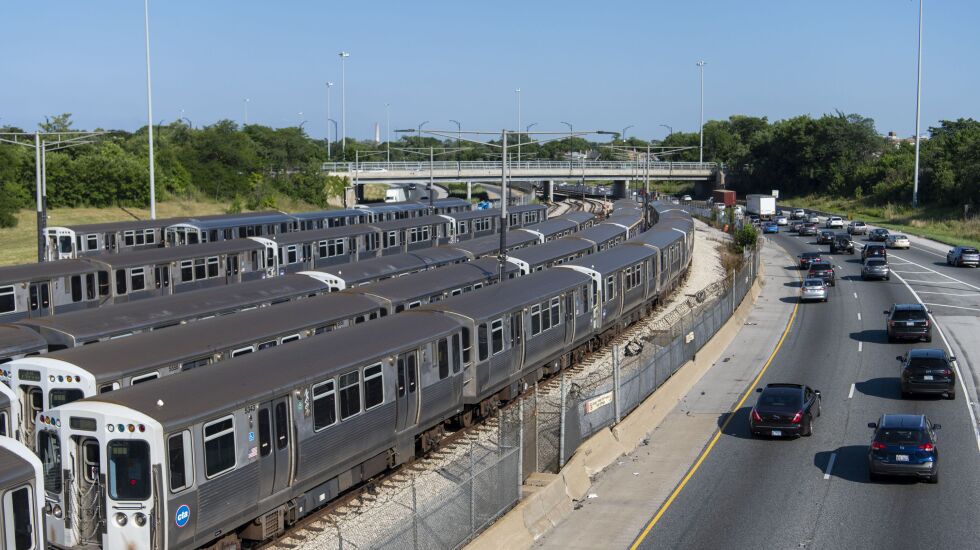
I’m writing in reference to the op-ed “Public transit in Chicago will fall off a fiscal cliff without a plan for 2025.” The authors, U.S. Rep. Raja Krishnamoorthi and state Sen. Ram Villivalam, use old data (from 11 months ago) to claim the CTA has only 53% of pre-pandemic ridership.
First, from June 2019 to June 2023 (the latest data in the Chicago Data Portal), that number is 61% of pre-pandemic levels. Eleven-month-old data ignores improvements CTA has tried to implement.
SEND LETTERS TO: letters@suntimes.com. To be considered for publication, letters must include your full name, your neighborhood or hometown and a phone number for verification purposes. Letters should be a maximum of approximately 375 words.
Also, the title is perceived as if no one has tried to make an attempt to solve this issue, but the Chicago Metropolitan Agency for Planning was commissioned to try and determine ways to find solve the budget gap — and they did. Earlier this month, they released the Plan of Action for Regional Transit (PART), which is a significant step in the right direction.
I’m one of many transit activists, I work with Commuters Take Action and am not prone to do the CTA any favors, but there are many members not as knowledgeable and might not know about PART. Presenting a problem as worse than it is only makes the public rally against fixing something, and all CTA commuters want the system improved.
Nik Hunder, public policy analyst/researcher, DePaul University
Crime rises when officers’ hands are tied
On Dec 20, Alexandra Block wrote we should not blame the rise in robberies, carjackings, etc., on changes the Chicago Police Department has made on vehicle pursuits (“Don’t blame Chicago police car chase policy for city’s spike in robberies”).
The rise in crime is often due to restrictions put upon the department. Criminals are not unintelligent. They can read and totally take notice of these things. Do not chase cars, do not have foot pursuits, do not stop and search vehicles or people on the street. The gang and criminal elements have picked up on this.
Where there was once a fear of being caught walking or driving down the street with weapons, it has diminished terribly. They know when they flee from any crime, the police department has been told not to chase. If they have no fear of being pursued and caught and incarcerated, why stop? Which causes them to be more apt to flee and put those who are uninvolved in harm’s way.
The mindset of too many supposed scholars is if they get away today, we’ll get them the next time. Well, how many other citizens will be carjacked, robbed or burglarized before this happens? Criminals will not stop because they are good citizens, because they have shown they are not.
The police department needs to be free to do its job, which is to bring criminals to justice. Otherwise, it’s only going to get worse. I won’t even get into how many times something starts over maybe a minor traffic violation and leads to the discovery of a much more serious crime. Educators can lead things from books and studies, but it is not close to what you learn having done the job.
Marc Hofer, retired Chicago police detective, Portage Park







